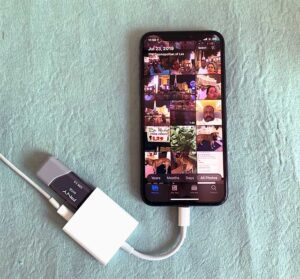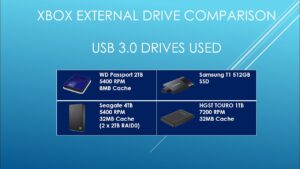Can I Leave an External Ssd Plugged in? Yes!
Yes, you can leave an external SSD plugged in. External SSDs are designed to be used and remain connected for a long period of time without any performance degradation or damage to the device.
You can leave an external SSD plugged in without any issues. It will draw a small amount of power from the computer and is unlikely to damage either device.
Is It Ok to Leave an External Hard Drive Plugged In?
Yes, it is perfectly safe to leave an external hard drive plugged in. Modern external hard drives are designed with energy saving technology and will not overheat or draw too much power when they remain plugged in.
Additionally, leaving your external hard drive plugged into a power source ensures that the data stored on the device remains available and accessible whenever you need it.
For extra protection, make sure that the connections between your external hard drive and any other devices (such as computers) are secure so that no unexpected disconnects occur which could lead to data loss.
How Long Will an External Ssd Last?
The life expectancy of an external SSD depends on the type of drive and its usage. Generally, most external SSDs are rated for up to 10 years or more of use if properly cared for.
However, it is important to keep in mind that this is only a manufacturer’s estimate and does not guarantee the actual lifespan of your device.
To ensure maximum longevity, avoid excessively writing data to your drive, keep away from extreme temperatures and humidity levels, and regularly back up all important files stored on the SSD.
Is It Safe to Unplug an Ssd Without Ejecting?
It is generally safe to unplug an SSD without ejecting it, as long as the drive is not actively being written to or read from.
However, if you want to be extra careful, you should always ‘eject’ the drive before unplugging it for peace of mind. This will ensure that all data transactions have been completed and no information has been lost in the process of disconnecting your SSD.
Before ejecting an SSD make sure any applications utilizing the drive are closed out so they don’t try accessing files while they are disconnected.
Do External Ssd Get Hot?
Yes, external SSDs can get hot. This is because the same basic technology used in internal SSDs is used in external ones as well – meaning that they are powered by NAND flash memory chips which generate heat while operating.
It’s important to keep your external SSD cool and away from direct sunlight or other sources of heat, since too much heat can cause it to slow down or even malfunction.
Additionally, you should make sure to check the temperature of your drive periodically using a thermometer so that you can take appropriate measures if it gets too hot.
Can I Leave an External Ssd Plugged in Reddit
It is generally safe to leave an external SSD plugged in when not in use. However, it is best practice to unplug your device when you are done using it as a precautionary measure – this will help reduce the risk of data loss and potential damage to your SSD due to power surges or other issues.
Additionally, if you plan on leaving your drive plugged in for extended periods of time (e.g., multiple days or weeks) then you should also consider investing in surge protectors and/or an Uninterruptible Power Supply (UPS) setup for added protection.
Can I Leave an External Ssd Plugged in Mac
Yes, you can leave an external SSD plugged in to your Mac. External SSDs are designed for long-term use and feature no moving parts, making them a reliable storage device that is safe to be left connected all the time.
Additionally, these solid state drives consume very little power when idle, so there’s no need to worry about wasting energy or draining your laptop battery while it’s connected.
Should I Unplug My External Hard Drive When Not in Use
It’s a good idea to unplug your external hard drive when it is not in use. Leaving the device connected may put unnecessary strain on the connection and potentially cause data corruption if an electrical surge were to occur while the hard drive was plugged in.
Additionally, by unplugging your external hard drive when not using it you can save energy and help prolong its life.
External Hard Drive With On/Off Switch
An external hard drive with an on/off switch is a great way to store large amounts of data and back up important files. It provides the convenience of plugging in one device, switching it on and immediately accessing your stored data without having to boot up your computer first.
The device also helps keep energy costs down by allowing you to turn off the power when not in use, making it both time-saving and cost-efficient.
Frequently Asked Question
Is It Safe to Leave an External Ssd Plugged in?
Yes, it is safe to leave an external SSD plugged in. External SSDs are designed to be left connected and typically do not need to be disconnected after each use.
Are There Any Negative Effects from Leaving an External Ssd Plugged in?
Yes, there can be negative effects from leaving an external SSD plugged in. These include increased wear and tear on the drive due to constant power cycling, as well as a decrease in the lifespan of the drive due to high temperatures caused by extended use. Additionally, an externally connected SSD could be vulnerable to malware or viruses if not properly protected with anti-virus software.
Do I Need to Shut down My Computer before Disconnecting an External Ssd?
Yes, you should always shut down your computer before disconnecting an external SSD. This will help prevent any data loss or corruption and ensure a safe removal of the device.
How Often Should I Unplug And Re-Plug in My External Ssd?
It is recommended that you unplug and re-plug in your external SSD at least once a month.
Conclusion
It is entirely safe to leave an external SSD plugged in. While it is not recommended that you leave any other type of hard drive constantly connected to your device, the lack of moving parts and improved design makes external SSDs much more reliable than traditional HDDs. This makes them ideal for storing large amounts of data and ensuring that your files remain secure and safe from power surges or other potential issues.







